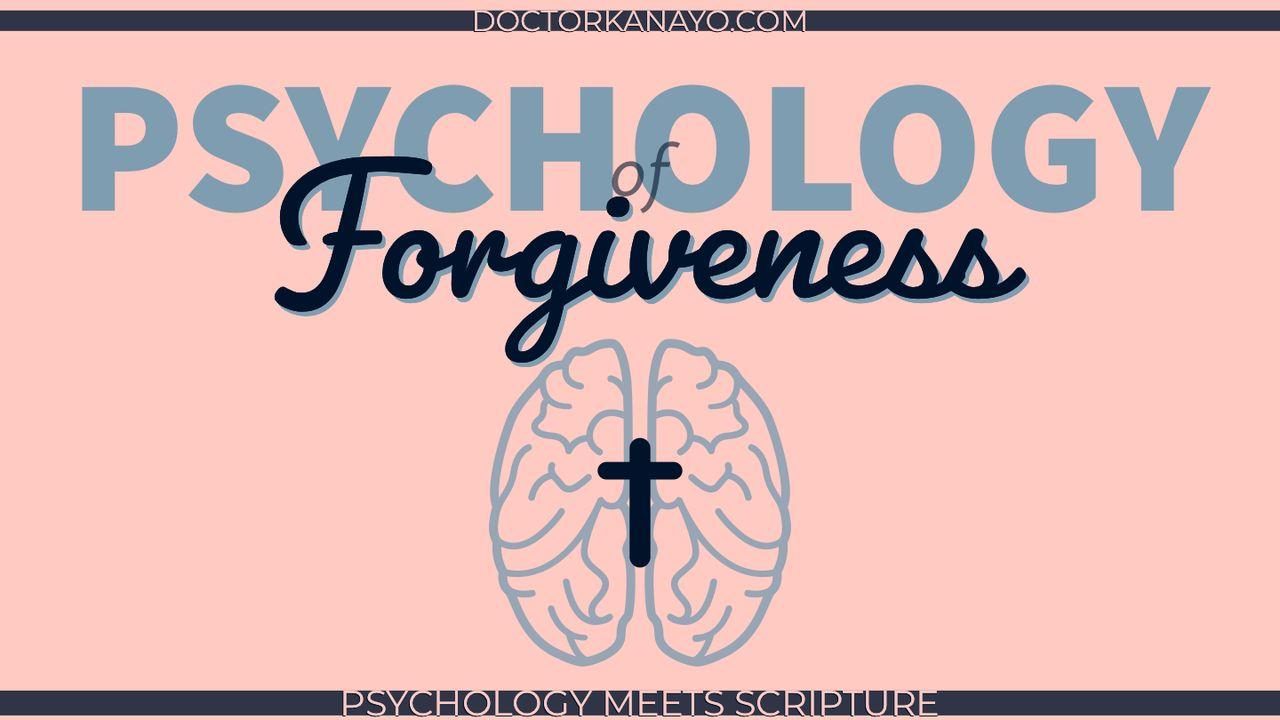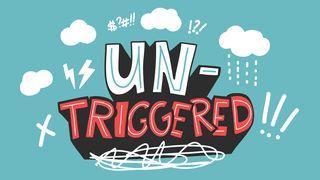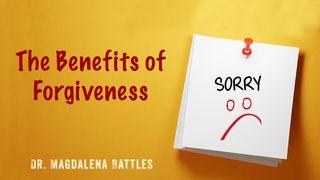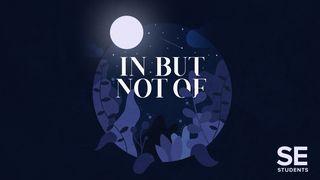Psychology of ForgivenessSample

Forgiveness does not excuse the offending behaviour. Forgiveness excuses the offender. The fact that God forgives us of sin, does not make sinning okay. The fact that we forgive someone of their sin towards us, does not make the sin okay.
I echo what was shared on day 2 of this devotional: When we forgive, we are saying to that person, you are bigger and better than what you did against me. I choose to see you over the sin. In the same way, God’s forgiveness reaffirms our true new identity in Him. He sees us and not the sin.
We will wrestle with forgiveness on many occasions and we will certainly have moments where we crave an apology, or when memory of the offence brings back feelings of anger, bitterness and a desire for vengeance. I encourage you to engage in an element of cognitive behavioural therapy (CBT) that is synonymous with the scripture in 2 Corinthians 10:5; taking thoughts captive.
Christian CBT acknowledges the activating event (the offence), the behavioural response (the anger, emotional despair) and the consequences (prolonged bitterness and negative thoughts). Yet as believers we dispute these negative thoughts far beyond how conventional psychology says we should. We don’t simply dispute by asking whether it is logical, practical or evidence-driven to think this way. Christian CBT compels us to take captive (known as ‘thought-catching’ in CBT) these negative thoughts and memories that do not align with the truth of God’s word and bring them to the obedience of Christ.
We dispute the unforgiving way of thinking, not just by saying ‘what would Jesus do?’, but by asking ‘what has Jesus already done?!’
When we remember the redemptive, merciful act of Christ, we can challenge these negative thoughts by asking, is it biblical to think this way? Is it merciful to think this way? If our answer is ’no’ to both questions, we can ask the Lord to grant us the strength to extend the grace of forgiveness over judgement.
Forgiveness is unbearable when you try and do it from your flesh. Forgiveness is biblical when you do it from God’s mercy.
Forgiveness is hard when you expect an apology. Forgiveness is Christ-like when you extend grace.
In summary, if you’ve forgiven someone, but the hurtful memories are still there:
- Don’t be hard on yourself. Your brain is literally functioning as normal, and the command to forgive is abnormal to the flesh, but it is still doable by His grace and Christ’s ultimate example of forgiveness.
- Be graceful. “Be kind and compassionate to one another, forgiving each other, just as in Christ God forgave you.” (Ephesians 4:32).
- Be merciful. Mercy is the withholding of the punishment that someone deserves. As we have received mercy, we are to be merciful.
- Where possible, and only if it is safe, make new, positive memories.
Thank you for journeying through devotional on the psychology of forgiveness. To find out more about how psychology can meet scripture, check out doctorkanayo.com and follow @doctorkanayo.
About this Plan

This devotional is where ‘psychology meets scripture’ on the topic of forgiveness. Oftentimes, we passively forgive an offender, with a simple ‘I forgive you’, however, the challenge comes when you are reminded of their offence every time you see them. Or when you find it hard to get rid of that negative memory. Sometimes these recurring memories and feelings make you question whether you have really forgiven them or not.
More
| We would like to thank Kanayo Dike-Oduah for providing this plan. For more information, please visit: https://doctorkanayo.com |
Related Plans

Untriggered: Resting in God When You’re Triggered by Anxiety, Anger, or Temptation

Forgiving What You Can’t Forget: A 5-Day Challenge

The Power of Your Words

Good Dreams... God Dreams

Love is the Answer

Get Out Of Your Head

The Benefits of Forgiveness

In But Not Of: Here, But Not Home—Part 1

RARE Relationships
